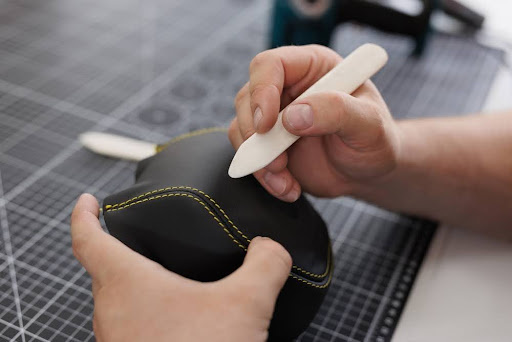Americans have all sorts of lifestyles, and the cars we drive often reflect those differences. Urbanites, squeezed into tight city spaces, tend to favor compact cars that can zip through traffic and fit into the smallest parking spots. On the flip side, families who need room for kids, gear, and the occasional road trip often go for SUVs and trucks—vehicles that scream "adventure" and promise a bit of off-road fun when the weekend calls for it.
The right car isn’t just a purchase; it’s an investment in your daily life. A smart choice can save you a lot of money on fuel, maintenance, and insurance, not to mention the heartache of dealing with an oversized vehicle that doesn’t fit your actual needs. Get a car that feels like an extension of you—one that lets you glide through your routine with ease, not one that drags you along for the ride.
Types of Cars
Here’s a roundup of types of cars that you’ll commonly find in your neighborhood:
Sedan
A sedan is a type of passenger car that typically has four doors, a separate trunk, and seating for four or more passengers. It is designed for comfort and practicality, making it a popular choice for everyday driving. Sedans are unique for their dedicated trunk space, which is completely separate from the passenger cabin. This design not only gives them a streamlined, sophisticated look but also offers practical benefits like improved noise insulation and added security for your belongings. Unlike hatchbacks or SUVs, where the cargo area is open to the cabin, sedans keep everything neatly tucked away, providing a quieter, more polished driving experience.
SUV (Sports Utility Vehicle)
An SUV (Sport Utility Vehicle) is a type of motor vehicle that combines features of a car and a truck. It is designed to handle rough terrains while offering the comfort and features of a passenger car. SUVs stand out for their elevated driving position and spacious interior, combining practicality with a commanding road presence. Their versatile cargo area, often accessible through a wide rear hatch, provides the flexibility to transport everything from groceries to outdoor gear. Unlike sedans, SUVs are built for a variety of terrains, offering options like all-wheel drive for added confidence on rough roads. With more legroom, higher ground clearance, and a design that prioritizes both comfort and utility, SUVs deliver a balanced blend of ruggedness and everyday convenience.
Hatchback
A hatchback is a type of car with a rear door that swings upward, providing access to a spacious cargo area. It combines features of a sedan and an SUV, offering a compact size with practicality and flexibility. Hatchbacks stand out for their compact design and versatile cargo space, blending the best of small-car efficiency with big-car practicality. The rear hatch opens to a spacious cargo area that can be expanded by folding down the back seats, making it perfect for everything from grocery runs to weekend getaways. Unlike sedans, hatchbacks offer easy access to storage and a more flexible use of interior space. Their nimble handling, efficient fuel consumption, and smart design make them a go-to choice for city driving without sacrificing functionality.
Coupe
A coupe is a two-door car typically characterized by a sleek, sporty design and a fixed roof. It is designed to prioritize style, performance, and a more dynamic driving experience compared to other vehicle types. Coupes stand out for their sleek, sporty design and focus on performance, offering a driving experience that’s all about style and thrill. With two doors and a sloping roofline, they prioritize aesthetics and agility over utility, making them perfect for those who value individuality and dynamic handling. Unlike sedans or SUVs, coupes are built to turn heads and deliver a more intimate, driver-focused experience. Whether it’s their sharper acceleration, precise steering, or luxurious interiors, coupes bring an unmatched blend of sophistication and excitement to the road.
Pickup Truck
A pickup truck is a type of vehicle designed with an open cargo area at the back, typically with low sides and a tailgate. It's primarily built for transporting goods and hauling, but modern pickups also offer comfort and versatility for everyday driving. Pickup trucks stand out for their rugged utility and unmatched hauling capability, making them the ultimate choice for work and play. With a powerful open bed in the back, they’re designed to carry heavy loads, from construction materials to outdoor toys like ATVs. Unlike SUVs or sedans, pickups are built tough, often offering higher ground clearance, four-wheel drive, and towing capacity that can handle trailers or boats with ease. Their versatile design pairs durability with comfort, giving you a vehicle that’s as reliable on the job site as it is on a weekend adventure.
Minivan/MPV (Multi-Purpose Vehicle)
A minivan, also known as an MPV (Multi-Purpose Vehicle), is a family-oriented vehicle designed for maximum passenger comfort and flexibility, with a focus on space, practicality, and convenience. MPVs (Multi-Purpose Vehicles) stand out for their family-friendly design and incredible interior flexibility, making them the ultimate choice for comfort and practicality. With spacious seating for up to seven or eight passengers, foldable or removable seats, and ample storage space, MPVs cater to both daily commutes and long road trips. Unlike SUVs or sedans, they emphasize passenger comfort with features like sliding doors for easy access, plenty of legroom, and clever storage compartments. Built for versatility, MPVs are ideal for growing families or anyone needing a reliable, roomy ride.
Station Wagon
A station wagon is a type of car designed with an extended rear roofline and a larger cargo area, making it more practical than a sedan while maintaining the compact size and driving characteristics of a car. Station wagons stand out for their car-like handling combined with extended cargo space, making them a perfect blend of practicality and performance. With a longer roofline and a spacious rear cargo area accessible through a hatch, they offer the utility of an SUV without sacrificing the smooth ride of a sedan. Unlike hatchbacks or SUVs, station wagons provide ample storage while maintaining a lower center of gravity for better road stability. They’re ideal for families or adventurers who need extra room for gear but prefer a sleek, understated design over bulkier alternatives.
How to Choose the Right Car Type
According to Statista, the most popular car types in the U.S. are sedans, hatchbacks, SUVs, and pickup trucks. These options dominate the market for good reason—they offer a mix of practicality, style, and performance that appeals to a wide range of drivers. However, just because they’re the best-sellers doesn’t mean one of them is automatically the right choice for you. Your decision should be based on your unique lifestyle, needs, and budget.
Selecting the wrong type of car can have lasting consequences. If you frequently travel long distances but choose a vehicle with poor gas mileage, you might end up spending thousands more on fuel over the years. Similarly, opting for a compact car when you need cargo space could lead to frustration and costly workarounds. From insurance premiums to maintenance costs, every detail matters.
Take the time to evaluate factors like fuel efficiency, seating capacity, safety features, and overall durability. Choose wisely, and you’ll save yourself from unnecessary headaches and expenses down the road. We have designed a table for you below to help you with a quick comparison of all types of cars.
Here you go:
| Factor | Sedan | SUV | Hatchback | Coupe | Pickup Truck | Minivan/MPV | Station Wagon |
| Passenger Capacity | 4-5 | 5-7 | 4-5 | 2-4 | 2-5 | 6-8 | 5-7 |
| Cargo Space | 12-16 cubic feet | 30-90 cubic feet | 15-55 cubic feet | 9-15 cubic feet | 40-80 cubic feet | 90-150 cubic feet | 20-70 cubic feet |
| Fuel Economy (Est-MPG) | 25-35 MPG | 18-28 MPG | 30-45 MPG | 20-30 MPG | 15-25 MPG | 18-25 MPG | 20-30 MPG |
| Towing Capacity (Est) | 1,000-2,000 lbs | 3,000-7,500 lbs | 1,000-1,500 lbs | 500-1,000 lbs | 5,000-13,000 lbs | 2,000-5,000 lbs | 1,000-3,500 lbs |
| Off-Road Capability | Limited | Moderate to High | None | None | Very High | None | None |
| Family-Friendly | Moderate | Very High | Moderate | Low | Moderate | Very High | High |
| City Driving (Est) | 20-25 MPG | 15-22 MPG | 25-35 MPG | 18-25 MPG | 10-18 MPG | 15-20 MPG | 18-25 MPG |
| Price Range | $20,000 - $50,000 | $25,000 - $70,000 | $20,000 - $40,000 | $20,000 - $50,000 | $25,000 - $70,000 | $30,000 - $60,000 | $25,000 - $50,000 |
| Insurance Costs | $1,200-$1,500/year | $1,500-$2,500/year | $900-$1,200/year | $1,200-$1,800/year | $2,000-$3,000/year | $1,500-$2,500/year | $1,200-$1,800/year |
Conclusion
A car isn’t just a thing you buy—it’s something you live with, day in and day out. It carries you through your routines, your escapes, and everything in between. Pick one that fits not just your budget or the specs on paper, but your life as it really is. Because the wrong car will remind you every single day, while the right one quietly makes your life just a little bit easier.
Frequently Asked Questions
What type of oil does my car take?
Most modern cars use synthetic blends like 5W-30 or 10W-30 for optimal performance and efficiency, but your owner’s manual is the ultimate guide. Using the wrong oil can hurt performance and lead to costly repairs.
What type of gas does my car take?
If your manual says regular (87), stick with it—higher octane won’t add value unless required. For turbocharged or high-performance engines, premium gas (91/93) isn’t optional; it’s a necessity.
What type of coolant does my car need?
Coolant isn’t one-size-fits-all. Modern cars often demand specific formulations, like long-life or HOAT (Hybrid Organic Acid Technology) coolants. Ignoring this can lead to overheating or expensive damage. Always consult your manual, and don’t mix different types.




